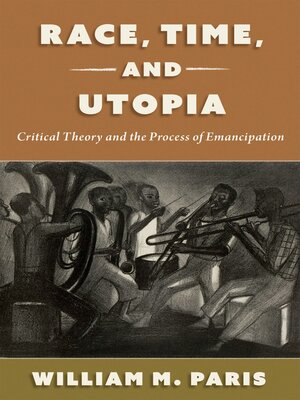Race, Time, and Utopia
ebook ∣ Critical Theory and the Process of Emancipation · Philosophy of Race
By William M. Paris

Sign up to save your library
With an OverDrive account, you can save your favorite libraries for at-a-glance information about availability. Find out more about OverDrive accounts.
Find this title in Libby, the library reading app by OverDrive.



Search for a digital library with this title
Title found at these libraries:
| Library Name | Distance |
|---|---|
| Loading... |
Racial injustice, at its core, is the domination of time. Utopia has been one response to this domination. The racially dominated are not free to define what counts as "progress," they are not free from the accumulation of past injustices, and, most importantly, they are not free from the arbitrary organization of work in capitalist labor markets. Racially unjust societies are forms of life where the justifications for how to organize time around life, labor, and leisure are out of the hands of the dominated. In Race, Time, and Utopia, William Paris provides a theoretical account of utopia as the critical analysis of the sources of time domination and the struggle to create emancipatory forms of life. Rather than focusing on inclusion and equality before the law, as found in liberal theories of racial injustice, Paris analyses the neglected "utopian" tradition of justice in black political thought that insists justice can only be secured through the transformation of society as a whole. This transformation is nothing less than the democratic transformation of how organize and narrate our shared time. Bringing into conversation the work of W.E.B Du Bois, Martin Delany, Marcus Garvey, Frantz Fanon, and James Boggs with the critical theory of Karl Marx, Ernst Bloch, Rahel Jaeggi, and Rainer Forst, Paris reconstructs a social theory and normative account of forms of life as the struggle over how time will be organized, asking "Can there be freedom without a new order of time?"







